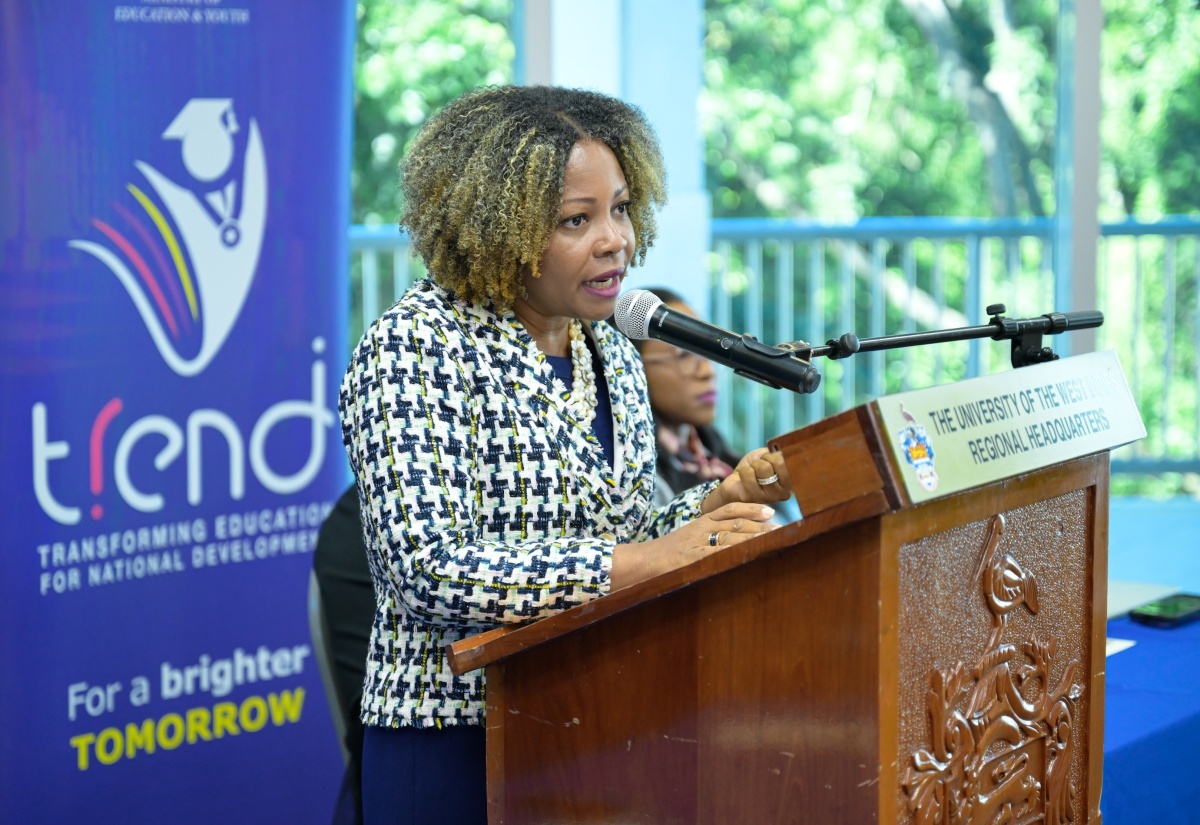Minister of Education, Skills, Youth and Information, Senator Dr. the Hon. Dana Morris Dixon, says that reducing absenteeism is essential to achieving equity and transformation in Jamaica’s education system.
“This is such a big deal, because when our children miss school, it really impacts their learning. We cannot talk about quality education if students can’t get to school,” she emphasised.
The Minister was speaking at a School Leadership Conference for Principals and other senior educators from Clarendon, held at the Bahia Principe Resort in Runaway Bay, St. Ann, on Tuesday (July 15).
She pointed out that many students in rural communities continue to miss out on school due to limited access to transportation.
“You’d be surprised how many children are not attending school because they don’t have access to transportation. We have to look at these environmental issues that are impacting education,” the Minister said.
Dr. Morris Dixon argued that addressing such barriers is critical to realising the Ministry’s mandate of inclusive and quality education for all.
“We are serious about ensuring that all our children can benefit from the education system, not just some. There are things that we must put in place so that the quality education we are talking about is accessible to every Jamaican child,” she emphasised.
The Minister further outlined that educational equity must not be determined by geography.
“When we talk about equity and transformation, this is what it means. It means that a child’s zip code should not determine whether or not they can attend school or succeed,” she said.
As part of efforts to reduce absenteeism among students in remote and underserved areas, the Government is rolling out a Rural School Bus Programme in September, designed to provide safe and affordable transportation for students across the island.
Phase one of the programme will see 60 refurbished school buses deployed in September, with an additional 40 buses scheduled to arrive by January 2026.
The initiative will initially benefit students in St. Thomas, St. Catherine and Clarendon and is expected to serve more than 258 rural schools, with future expansion to over 850 schools.
Students will pay a flat fare of $50 per trip, and approximately 328,000 students will be provided with reliable transportation to school.
In St. Thomas alone, seven buses will be assigned to serve 10 schools under this initiative, helping to ensure that geography does not become a barrier to consistent attendance and educational achievement.


